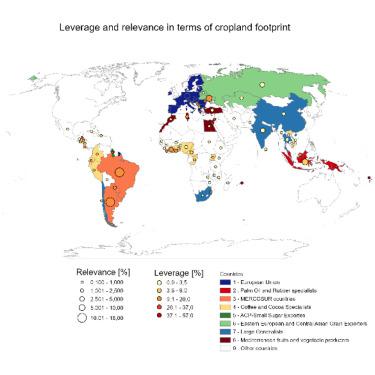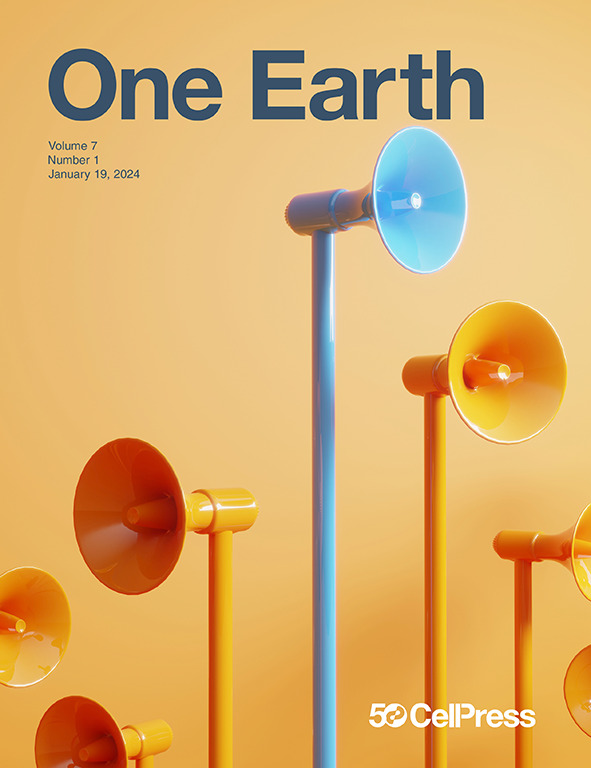Prioritizing partners and products for the sustainability of the EU’s agri-food trade
IF 15.3
1区 环境科学与生态学
Q1 ENVIRONMENTAL SCIENCES
引用次数: 0
Abstract
Global agri-food systems couple sustainability challenges in producing countries to consumption behavior and regulations in destination markets. We assume that trade relations can be prioritized according to (1) the relevance (share of imports) and (2) leverage (share of domestic production for destination market). This study analyzes the relevance and leverage of the EU’s crop imports in monetary values, footprints, and deforestation. Our results identify high relevance and leverage values in trade relations with specific partner countries, particularly palm oil and rubber specialists in East Asia and soy-producing MERCOSUR countries. High leverage values in imports from African-Caribbean-Pacific small sugar specialists and other small countries highlight the EU’s potential to establish sustainability criteria. We suggest that the EU revises incoherent foreign and domestic policies and proactively engages with trading partners to include sustainability safeguards in the whole value chain with particular focus on trade relations with high relevance and leverage values.

优先考虑合作伙伴和产品,促进欧盟农业食品贸易的可持续性
全球农业食品体系将生产国的可持续性挑战与目的地市场的消费行为和法规结合起来。我们假定,贸易关系可以根据(1)相关性(进口份额)和(2)杠杆作用(目的地市场的国内生产份额)来确定优先次序。本研究分析了欧盟农作物进口在货币价值、足迹和森林砍伐方面的相关性和杠杆作用。我们的研究结果表明,在与特定伙伴国的贸易关系中,特别是东亚的棕榈油和橡胶专家以及南方共同市场的大豆生产国,相关性和杠杆值都很高。从非洲-加勒比-太平洋小糖专家和其他小国进口的高杠杆值凸显了欧盟制定可持续性标准的潜力。我们建议欧盟修改不连贯的外交和国内政策,积极主动地与贸易伙伴接触,在整个价值链中纳入可持续性保障措施,特别关注具有高度相关性和杠杆价值的贸易关系。
本文章由计算机程序翻译,如有差异,请以英文原文为准。
求助全文
约1分钟内获得全文
求助全文
来源期刊

One Earth
Environmental Science-Environmental Science (all)
CiteScore
18.90
自引率
1.90%
发文量
159
期刊介绍:
One Earth, Cell Press' flagship sustainability journal, serves as a platform for high-quality research and perspectives that contribute to a deeper understanding and resolution of contemporary sustainability challenges. With monthly thematic issues, the journal aims to bridge gaps between natural, social, and applied sciences, along with the humanities. One Earth fosters the cross-pollination of ideas, inspiring transformative research to address the complexities of sustainability.
 求助内容:
求助内容: 应助结果提醒方式:
应助结果提醒方式:


